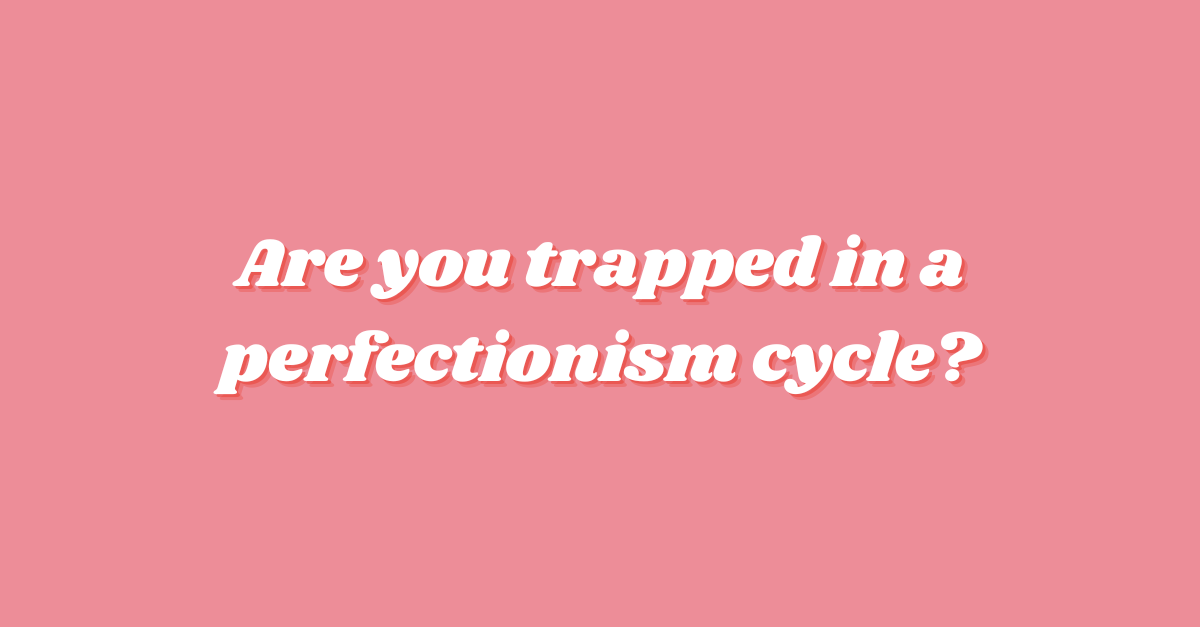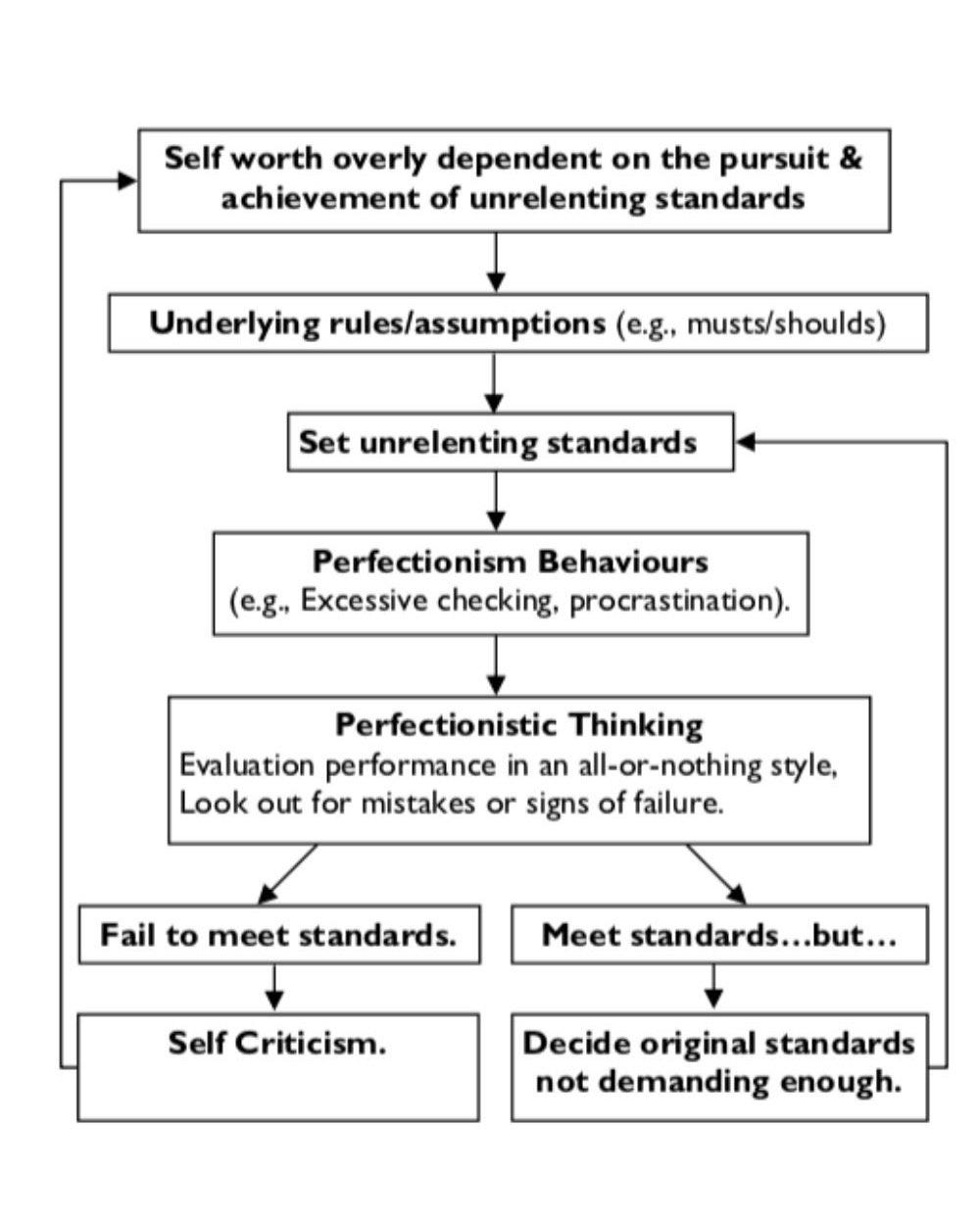Do you hold yourself to high standards? Do everything you can to avoid failure — including procrastination? Stay awake at night thinking about that one thing you got wrong, rather than all the things you got right?
Then you might be a perfectionist.
We touched on perfectionism in our recent post on creative anxiety. But since it’s something that affects a lot of us (especially those of us with a loud inner critic), we want to dive into it some more.
In particular, we’re going to explore a psychological theory known as the “perfectionism cycle”. But first…
How do I know if I’m a perfectionist?
A common misconception is that perfectionism is about being perfect, but it’s way more than that. In fact, lots of people don’t realise they’re perfectionists.
Perfectionism is having high or unrealistic standards for yourself (not necessarily the same thing as being “perfect”).
Of course, this can be a positive: like imposter syndrome or stress, perfectionism can be a big motivator in achieving our goals and striving to improve. The downside is that perfectionism can also lead to negative consequences, like chronic dissatisfaction, excessive self-criticism, and anxiety.
Here are some typical signs you might be a perfectionist:
Setting unrealistically high standards: you set excessively high standards for yourself (whether in work, relationships, your appearance or personal milestones) that are difficult or even impossible to meet.
Fear of making mistakes: you have a deep fear of making mistakes and view them as personal failures.
Excessive attention to detail: you tend to have a strong focus on details and can get bogged down by minor aspects of a task or project. This can lead to difficulty making decisions, as you overanalyse or second-guess yourself.
Procrastination: paradoxically, you may also struggle with procrastination. The fear of not being able to meet your high standards can feel overwhelming and lead to avoidance or stalling.
All-or-nothing thinking: your thinking is very black-and-white, and you perceive outcomes as either perfect or complete failures.
Excessive self-criticism: you have a harsh inner critic that constantly evaluates your performance and self-worth. You’re quick to blame yourself and struggle with self-compassion and self-acceptance.
Seeking external validation: you rely heavily on external validation and approval from others to feel a sense of worth. You feel an intense need for praise, recognition, and affirmation of your achievements.
Where does my perfectionism come from?
Perfectionist tendencies stem from your TA drivers, which are shaped in childhood and form your behaviour and personality traits as an adult (check out this post to learn more).
If your TA driver is “Be Perfect”, then you guessed it, you’re probably a perfectionist. It’s likely that you were praised a lot as a child for being clever or a high achiever. This will influence your inner critic’s narrative as an adult.
What is the perfectionism cycle?
The perfectionism cycle is a recurring pattern of stages that perfectionists experience. There are various different models, but they tend to go something like this:
Underlying beliefs: your self-worth is overly dependent on achieving high standards.
Setting high standards: so you set yourself goalposts that are very hard to achieve, or even unrealistic/impossible.
Perfectionist behaviour and thinking: you experience all the signs we mentioned above, like procrastination, excessive checking, fear of failure, or an all-or-nothing mentality.
Here’s where we split off onto two paths — but they both have the same outcome.
a) Failure to meet standards.
b) Meeting or exceeding standards.
Self-evaluation based on performance:
a) You might experience temporary relief from meeting your standards, but this is short-lived, as you decide your original standards weren’t high enough.
b) Falling short of your expectations (even if they were impossibly high) reinforces your self-critical thoughts and feelings of inadequacy.
The cycle continues: both outcomes take us right back to the beginning, fuelling our underlying beliefs and perpetuating the cycle.
Source: Living Better Lives
Can I break the cycle?
Breaking the perfectionism cycle can take time, and you might never fully release yourself from your perfectionist tendencies. But remember, that’s OK! When we reflect on our qualities objectively, we see that they can have both pros and cons.
Your perfectionism might be the reason you’ve landed your dream job or nailed your Victoria sponge recipe.
But if you feel like perfectionism is holding you back, you might want to work on:
Developing your self-compassion and inner kindness
Challenging or rewriting unrealistic standards
Embracing mistakes as opportunities for growth
Valuing yourself beyond your achievements
Therapy, particularly cognitive-behavioral therapy (CBT), can be really helpful in addressing perfectionism and its challenges.
So, now you’ve come to the end of this post…do you think you’re a perfectionist?! Tell us about your experiences in the comments.
We’ll be back next week with more insights and tips to help you get to know yourself (and your inner critic).








